- About Us
- Columns
- Letters
- Cartoons
- The Udder Limits
- Archives
- Ezy Reading Archive
- 2024 Cud Archives
- 2023 Cud Archives
- 2022 Cud Archives
- 2021 Cud Archives
- 2020 Cud Archives
- 2015-2019
- 2010-2014
- 2004-2009
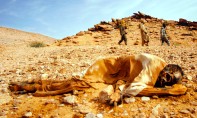 |
Darfur Crisis: Mediation Failure and Alex de Waal |
The residents of Aamo, Sudan and its surroundings have coexisted peacefully with the nomad community headed by Musa Hilal Sr. for generations. Yet these peace-loving inhabitants of the area were unjustly described by British writer and social anthropologist Alex de Waal in his 2004 thesis Counter-Insurgency on the Cheap as effectively hostile, inhospitable and cruel when he wrote “…the local villagers, from Tunjur group [a close relation of Fur, the largest ethnic group in the region], had given them [the nomads to which Hilal Sr. belongs] only dry, sandy soil.” This is a clear indication that Alex de Waal does not hesitate in labeling not only the local farmers of Aamo but the entire farming communities across Darfur as being in opposition to the nomad of Darfur.
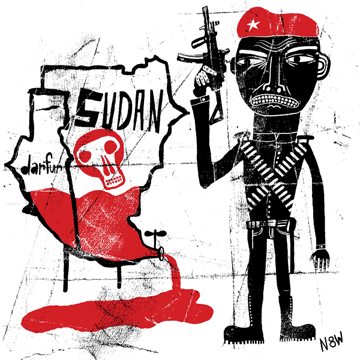 However a few lines later in the same thesis de Waal surprisingly contradicted his portrait -perhaps unconsciously- when he emphasized a recollection from Ahmed Diraige, former governor of the Sudanese province Darfur. Here he described how Diraige’s father, Ibrahim, a Fur shartai (shartai is another word for a paramount chief), “… hosted Sheikh Hilal’s clan and their camels every season in his village, Kargula, on the southern slopes of the mountain of Jebel Marra. Shartai would slaughter a bull to welcome the Jalul, who would pasture their camels on the harvested fields.”
However a few lines later in the same thesis de Waal surprisingly contradicted his portrait -perhaps unconsciously- when he emphasized a recollection from Ahmed Diraige, former governor of the Sudanese province Darfur. Here he described how Diraige’s father, Ibrahim, a Fur shartai (shartai is another word for a paramount chief), “… hosted Sheikh Hilal’s clan and their camels every season in his village, Kargula, on the southern slopes of the mountain of Jebel Marra. Shartai would slaughter a bull to welcome the Jalul, who would pasture their camels on the harvested fields.”
Across refugee camps in Darfur, demonstrations took place in reaction to the flimsy peace accords signed in Abuja on May 5th, 2006 and orchestrated with de Waal’s blessing. He was quick to claim that Darfuris demonstrated not because they disagreed with the Darfur Peace Agreement as a weak, ill-informed arrangement, but “because it lacked the signature of their leader.” Since de Waal was not even in Darfur at the time the deal was signed, how could he verifiably be so sure that Darfuris in the camps demonstrated because their leader had not signed? If de Waal assumes that all refugees and displaced peoples in Darfur blindly follow a leader without considerations for reason, then he missed the real truth for there was, at that moment, more than one leader representing the many dwellers of the camps. Several followers of leaders who signed the flawed Abuja deal detached themselves from the dead-born deal.
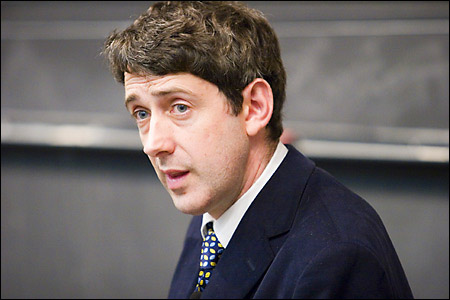 It is hard to think that de Waal has an interest in seeing the Darfur crisis come to a swift end. The focus in his writing seems to be in pouring utter rage upon the people who indirectly or unconsciously do not support his philosophy of ‘my way to peace or no other way’. From the very outset, de Waal has worked meticulously and invested heavily in defending his position vehemently even as it exacerbates the situation of the ongoing genocide in Darfur. The English academic Eric Reeves assessed that de Waal “can’t seem to escape his heavy investment in the failed Abuja peace process, and writes contemptuously.” Reeves’ words reinforce that de Waal’s focus does not rest in finding a solution to the Darfur crisis rather than finding himself in a better position in terms of intellectual respectability and reputation and protecting established financial interests dependent upon immediate peace.
It is hard to think that de Waal has an interest in seeing the Darfur crisis come to a swift end. The focus in his writing seems to be in pouring utter rage upon the people who indirectly or unconsciously do not support his philosophy of ‘my way to peace or no other way’. From the very outset, de Waal has worked meticulously and invested heavily in defending his position vehemently even as it exacerbates the situation of the ongoing genocide in Darfur. The English academic Eric Reeves assessed that de Waal “can’t seem to escape his heavy investment in the failed Abuja peace process, and writes contemptuously.” Reeves’ words reinforce that de Waal’s focus does not rest in finding a solution to the Darfur crisis rather than finding himself in a better position in terms of intellectual respectability and reputation and protecting established financial interests dependent upon immediate peace.
During 2005 and 2006 De Waal was an envoy in the African Union’s mediation team for Darfur and sought an African assistant to help further enable his understanding of the situation. Among the conditions he set down for making the potential candidate eligible to assist him were that the government of Sudan approved the appointment of the person in question and that the person could not be Sudanese. These kinds of conditions alone tell much about his potential ‘neutrality’ in any peace processes. What makes many Darfuris perplexed is why de Waal is inclined toward propagating views that are effectively hostile towards decreasing the suffering of victims of the genocide orchestrated by the government of Sudan. Why does he market ideas that contribute little in helping alleviate the suffering of the people of Darfur?
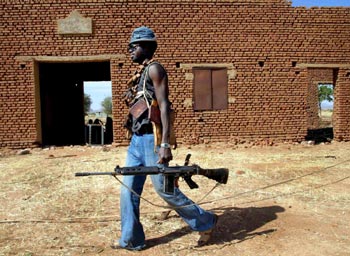 An African Union with very limited knowledge about Darfur and yet seeking to facilitate peace in the Sudan turned for advice to Alex de Waal, a ‘specialist’ in the field, even as he is an academic whose alleged knowledge of Darfur is invariably based far more upon assumptions rather than facts. Few individuals with at least basic familiarity on Darfur would disagree about whether or not useful advice could ever have been elicited from the author of discourses whose many lines relevant to Aamo and the Fatta Borno camp have consistently been filled with misinformation about the farming communities in Darfur. We are left to wonder by the kind of unsubstantiated claims and assessments he expresses as to whether or not de Waal has even been back to the region in the last decade.
An African Union with very limited knowledge about Darfur and yet seeking to facilitate peace in the Sudan turned for advice to Alex de Waal, a ‘specialist’ in the field, even as he is an academic whose alleged knowledge of Darfur is invariably based far more upon assumptions rather than facts. Few individuals with at least basic familiarity on Darfur would disagree about whether or not useful advice could ever have been elicited from the author of discourses whose many lines relevant to Aamo and the Fatta Borno camp have consistently been filled with misinformation about the farming communities in Darfur. We are left to wonder by the kind of unsubstantiated claims and assessments he expresses as to whether or not de Waal has even been back to the region in the last decade.
“Military intervention won’t stop the killing,” emphasizes de Waal, even as he concedes that the people of Darfur have experienced “terrible war, massacre, hunger and displacement at the hands of the Government.” UN Security Council resolution 1706 in August of 2006 authorized UN troops with a clear mandate to protect the civilian population as well as humanitarian operations in the Sudan. This will absolutely improve the security situation in Darfur. Many civilian lives have been saved and many more will still be spared. Systematic operations of indiscriminate killing of civilians by the Sudanese military and its aligned Janjaweed militias will be certainly and gradually reduced with UN troops on the ground. The campaign of massacre, hunger and displacement orchestrated by the Sudanese regime could perhaps, once and for all, be abated.
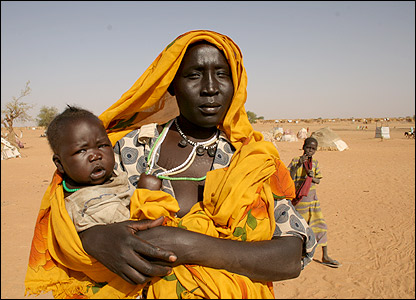 Discouraging viable alternatives that lead to a relatively speedy solution in Darfur and advertising alternatives that do not only deliberately postpones peace and prolongs the suffering of the civilian population in refugee and Internally Displaced Persons (IDP) camps. Since the eruption of the Darfur crisis Alex de Waal has consistently remained true to one main concern: to remain a business man no matter what happens and at the expense of anyone else’s misery. Doing business where no blood is involved is one matter, but to engage in business at the expense of other peoples' lives is quite another. Had de Waal not been involved, the situation in Darfur may, by now, have already taken different and like a far better course.
Discouraging viable alternatives that lead to a relatively speedy solution in Darfur and advertising alternatives that do not only deliberately postpones peace and prolongs the suffering of the civilian population in refugee and Internally Displaced Persons (IDP) camps. Since the eruption of the Darfur crisis Alex de Waal has consistently remained true to one main concern: to remain a business man no matter what happens and at the expense of anyone else’s misery. Doing business where no blood is involved is one matter, but to engage in business at the expense of other peoples' lives is quite another. Had de Waal not been involved, the situation in Darfur may, by now, have already taken different and like a far better course.
Ahmed, a contributor to the Darfur Daily News, can be contacted at mohamedain02@gmail.com
